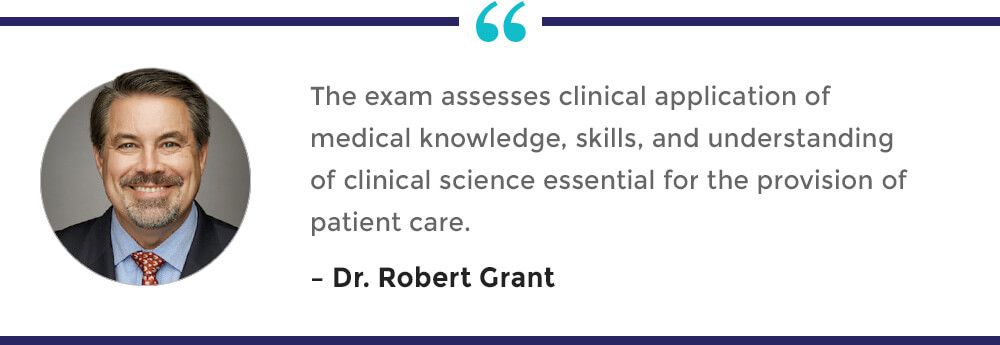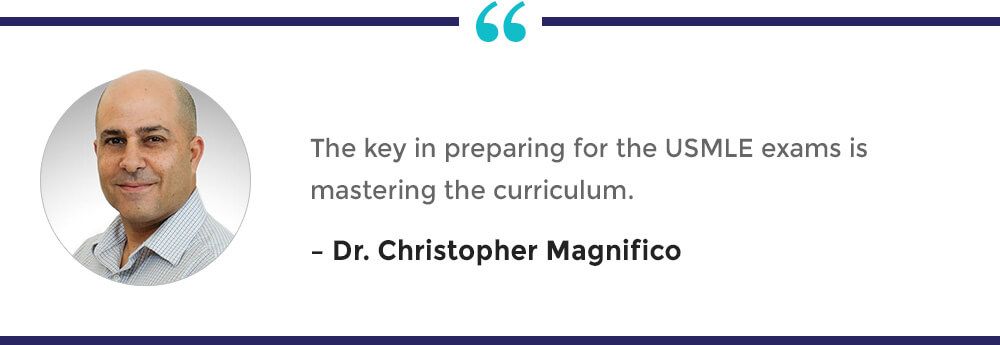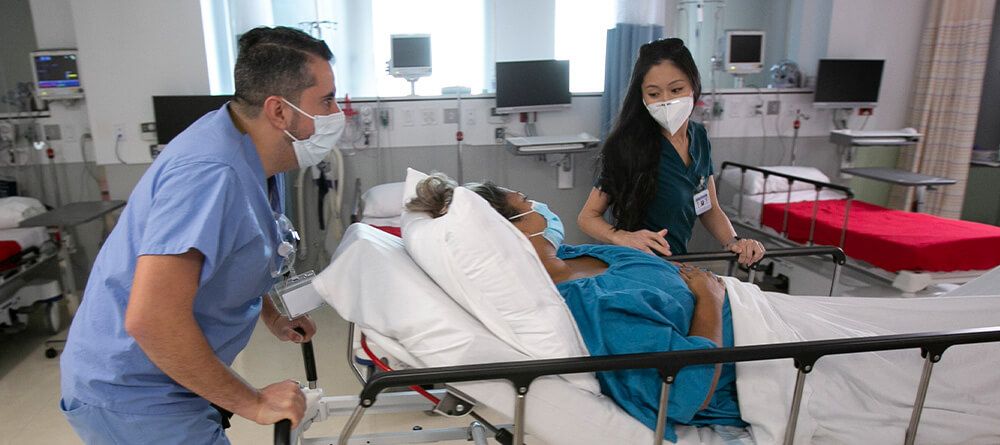The path to becoming a doctor consists of a handful of checkpoints to evaluate your medical knowledge and skills. This process ensures that all licensed physicians are well equipped to practice medicine and have received the proper education and training to do so.
One example of this is requiring medical students to sit for of the United States Medical Licensing Examination (USMLE) Step 1 at the end of their second year in school to assess their understanding of and ability to apply the basic science concepts critical to practicing medicine. After step 1 of the exam comes the USMLE Step 2. Rounding out the assessments you’ll undergo in medical school, this test score can be critically important.
As you prepare to become a physician, you’ll want to ensure you’re well-equipped to perform well on this test. Join us as we explore the answers to many of the common questions about the USMLE Step 2.
5 FAQs about the USMLE Step 2
If you’ve already passed the USMLE Step 1, then you’ve demonstrated your ability to comprehend and implement important science concepts inherent to practicing medicine, with special emphasis on principles and mechanisms underlying health, disease, and modes of therapy.
As you approach phase two of this assessment process, you likely have a lot of questions. We consulted the Associate Dean of the St. George’s University (SGU) School of Medicine, Dr. Christopher Magnifico, and SGU’s Senior Clinical Associate Dean, Dr. Robert Grant, to learn more about what you can expect.
1. Why is the USMLE Step 2 important?
While the USMLE Step 1 covers the basic science principles you’ll need to master as a physician, the USMLE Step 2 will focus on your clinical knowledge. “The USMLE Step 2 Clinical Knowledge (CK) exam assesses a student’s ability to apply the basic science concepts with the newly acquired clinical skills and medical knowledge from each clerkship in patient care,” Dr. Magnifico explains.
Medical students typically begin doing clinical rotations—also called clerkships—during the third and fourth year of medical school. This is when their hands-on learning of medical practice kicks into full gear. The USMLE Step 2 focuses on the medical training acquired during this time.

Beyond simply serving as a marker of your high-quality medical education and eligibility for medical licensure, the USMLE Step 2 has, by some viewpoints, increased in importance in recent years. Starting in January 2022, the passing standard for the USMLE Step 1 has shifted to a pass/fail scoring system.
Even still, the National Resident Matching Program’s (NRMP) 2021 Program Director Survey indicates that USMLE scores are one of the top criteria residency directors consider when reviewing applications. “The USMLE Step 1’s pass/fail status in 2022 and beyond is likely to enhance the effect of the USMLE Step 2 on residency matching, since the numerical result will remain as the sole standardized factor in the residency application process,” Dr. Grant elaborates.
2. When do I take the USMLE Step 2 ?
Because the USMLE Step 2 focuses on clinical knowledge, the timeline is designed so that medical students have the opportunity to experience clinical rotations. As a medical student, these clinical rotations are your opportunity to experience life as a physician firsthand.
By practicing under the supervision of attending doctors, students have the chance to learn about the interpersonal skills needed for direct patient care, how to develop the critical thinking abilities you’ll need in a fast-paced medical environment, and more. For many, it’s also an opportunity to explore different medical specialties.
After this hands-on training is completed, students will sit for the USMLE Step 2 to test their clinical knowledge during their fourth year of medical school.
3. What topics does the USMLE Step 2 cover?
You now know that the USMLE Step 2 assesses your ability to apply your medical knowledge in a clinical setting. In doing so, the topics covered include quite a range. Step 2 questions are drawn from the disciplines of internal medicine, obstetrics and gynecology, pediatrics, preventative medicine, psychiatry, and surgery.
“The examinee will interpret tables and laboratory data, imaging studies, photographs of gross and microscopic pathological specimens, and results of other diagnostic studies,” Dr. Grant explains. “Step 2 tests the student’s knowledge of medicine—putting special emphasis on the principles and mechanisms of underlying disease and the therapies needed to address them.”
For more information about the 18 major test categories you can expect, you can find a full USMLE Step 2 content outline on the USMLE website.
4. What format can I expect from the USMLE Step 2?
The USMLE Step 2 is a one-day assessment, but it can be a bit of an arduous process. It’s divided into eight 60-minute blocks, administered in one nine-hour testing session. The exam also includes a minimum allotment of 45 minutes of break time and a 15-minute optional tutorial.
The number of questions delivered in each hour-long block will vary, but it will never exceed 40, and the total number of items on the overall exam will not exceed 318. It’s recommended that you review all of the information and resources offered by the USMLE website, including a full content outline, sample test questions, and a USMLE practice session.
5. What are the best ways to prepare for the USMLE Step 2?
Now you’re well-equipped with a number of helpful study resources from the USMLE website. But beyond the sample test questions and practice sessions, how can you set yourself up for success when approaching the USMLE Step 2?

According to Dr. Magnifico, a high-quality medi school should adequately prepare you with the knowledge and skills you’ll need to achieve a satisfactory score. “The SGU curriculum is designed to educate students on health promotion and disease management and prevention,” he adds. “These concepts prepare students for optimal USMLE readiness.”
Dr. Grant notes that there are some study guides you can purchase online but working through your assigned curriculum should be your primary area of concentration. He also suggests gleaning insight from others who have experience with the USMLE process.
“I recommend speaking with students who have recently taken the clinical knowledge exam to see how your peers have prepared—and to receive feedback on what they felt worked well or what they wish they had focused on as they prepared for the exam,” Dr. Grant says, adding that there are several video resources other medical students have uploaded to sites like YouTube offering this type of USMLE feedback.

Set yourself up for a successful residency
The USMLE Step 2 serves as yet another checkpoint on your medical school journey. A successful score can help you secure a residency, which can have a big impact on the trajectory of your medical career.
So as you prepare to ace your USMLE Step 2 examination, it’s helpful to learn more about the residency matching process that will follow. To learn more, visit our article “7 Important Residency Application Milestones Medical Students Need to Know.”




